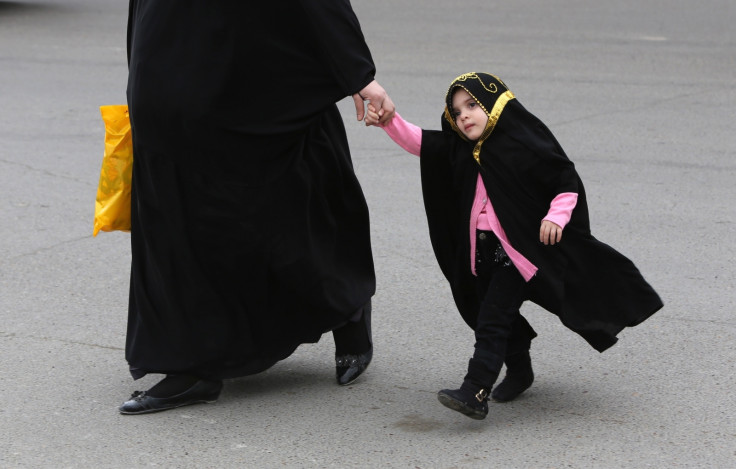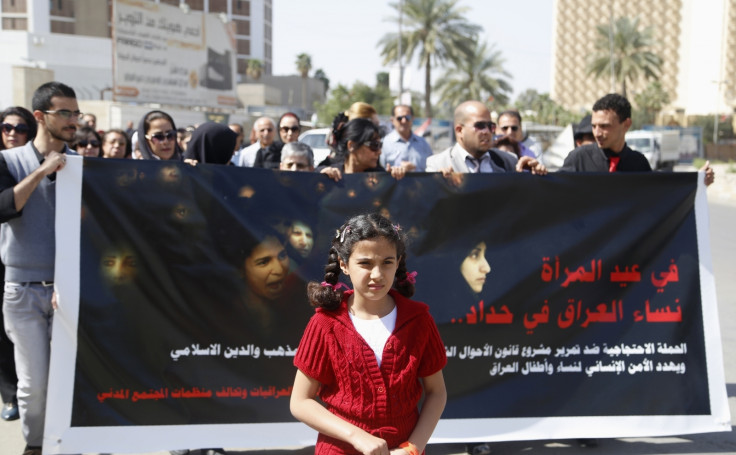Nine-year-old girls in Iraq could be forced to marry under new Muslim laws
The bill includes provisions that would legalise marital rape and child marriage and ban Muslims from marrying non-Muslims.
Human rights activists are warning that a new Iraqi law could legalise marriage for children as young as nine and set women's rights back 50 years.
They are calling on Iraqi ministers to withdraw a draft of the Jafaari Personal Status Law which would allow Muslim clerics to have control over marriage contracts.
The legislation is based on the Shia principles of the Jaafari school of jurisprudence, which was founded by the sixth Shia Imam, Jaafar al-Sadiq.
The 2014 version of the bill, which was approved by Iraq's Council of Ministers, includes provisions that would legalise marital rape, ban Muslims from marrying non-Muslims and allow nine-year-old children to marry.
On 1 November, Iraq's Council of Representatives voted in principle to approve the amendment and the bill was signed by 40 parliamentarians. Iraq's elections will be held in May next year.
The law, which would cover the 36 million Shia citizens living in Iraq, would have a "catastrophic" impact on women's rights, according to Suad Abu-Dayyeh, Middle East consultant for the advocacy group Equality Now.
"We are outraged," she told The Guardian. "We will be supporting women in Iraq by issuing alerts about the bill. We are also writing letters to the speaker of [parliament] and the president."
Activists from civil society organisations gathered in the Iraqi city of Sulaymaniyah on Sunday (12 November) to present a petition against the bill.
"This new bill to amend the Personal Status Law will authorize religious men to enforce illegal marriages and force girls under 18 to live with their in-laws. This is a setback to the achievements Iraqi women made and struggled for half a century ago," the petition read.

If the law is approved by the Iraqi parliament, it "would be a disastrous and discriminatory step backward for Iraq's women and girls," according to Joe Stork, deputy Middle East and North Africa director at Human Rights Watch (HRW).
"This personal status law would only entrench Iraq's divisions while the government claims to support equal rights for all," he said. "It flies in the faces of the Iraqi government's legal commitments to protect women's and girls' rights."
The United Nations in Iraq has also condemned the bill. "I call upon the Council of Representatives to seize this opportunity...to conduct a wider consultation on the draft amendments in a participatory manner to recommit to and ensure the full respect, protection and fulfillment of women and girls' rights in Iraq in relation to matrimonial and other matters," said Jan Kubis, the special representative to Iraq of the UN Secretary-General.























